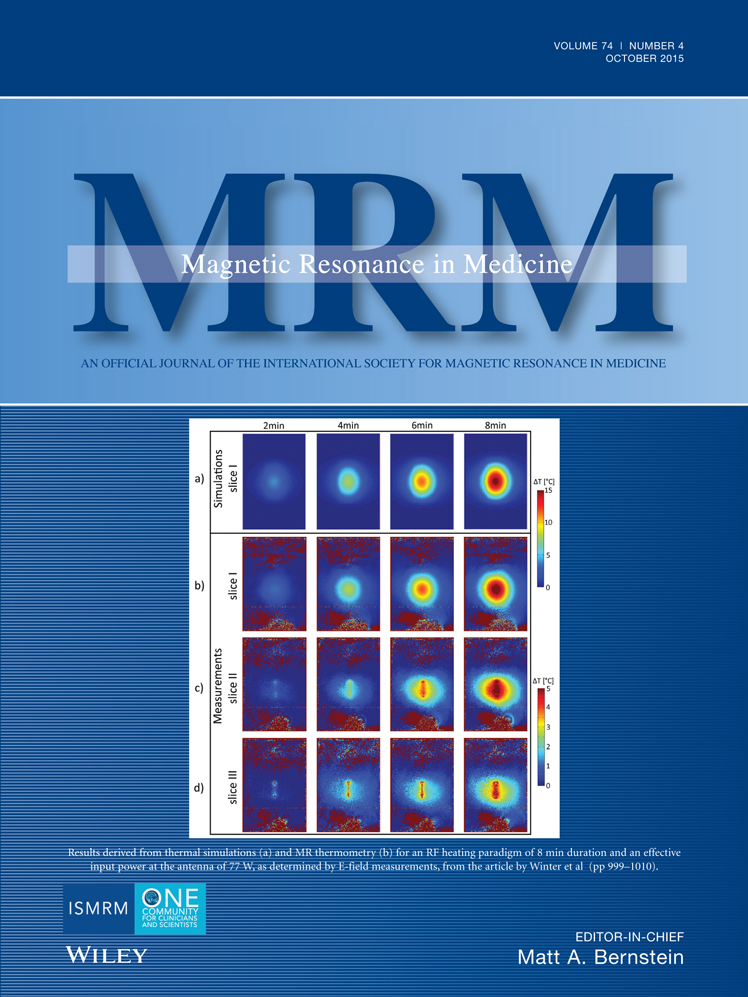GRAPPA reconstruction with spatially varying calibration of self-constraint
Abstract
Purpose
To develop and evaluate a novel method of generalized auto-calibrating partially parallel acquisition (GRAPPA) with spatially varying calibration of self-constraint for parallel magnetic resonance imaging (MRI) reconstruction.
Theory and Methods
The conventional GRAPPA independently estimates each missing sample with adjacent acquired data over multiple coils, thereby ignoring correlations inside missing data. Self-constrained methods can exploit correlations inside missing data by imposing linear dependence within full neighborhood kernels and showing improved reconstruction compared with GRAPPA. However, self-constraint kernels are currently calibrated by using auto-calibration signals. Thus, they may be suboptimal for reconstructing outer k-space because of spatially varying correlations. This study proposes a novel GRAPPA method with separate self-constraints (SSC-GRAPPA). In this method, the spatially varying self-constraint coefficients are adaptively calibrated by separately exploiting correlations inside missing and acquired data in the outer k-space. Both phantom and in vivo imaging experiments were conducted with retrospective undersampling to evaluate the performance of the proposed method.
Results
Compared with GRAPPA and self-constrained GRAPPA, the proposed SSC-GRAPPA generates images with reduced artifacts and noise.
Conclusion
The proposed method provides an effective and efficient approach to improve parallel MRI reconstruction, and has potential to benefit routine clinical practice in the future. Magn Reson Med 74:1057–1069, 2015. © 2014 Wiley Periodicals, Inc.




